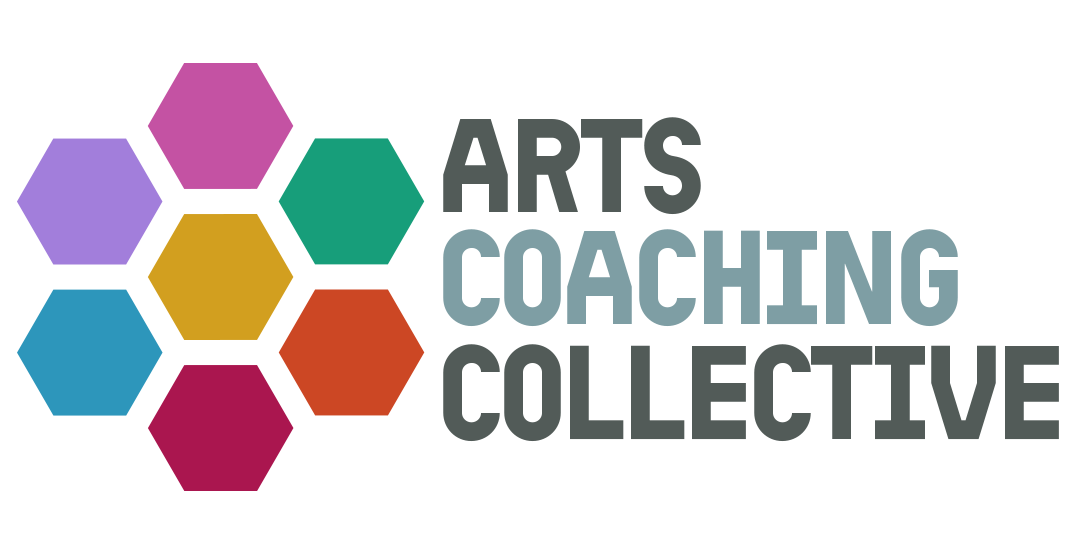
Who We Are
The Arts Coaching Collective is a group of qualified coaches who are also artists and arts professionals.
We have a unique, authentic understanding of how art is made and a deep respect for those who make art or who make art happen. Our lived experience of the arts informs our practice as coaches and creates an immediate affinity with those we coach.
Life in the arts has always been challenging and never more so now. We care about the future of the arts in Ireland and about the people within the arts community.
The Arts Coaching Collective exists to advance a culture of coaching in the arts in Ireland that empowers and enables artists and arts professionals to be at their best. With a focus on supporting individuals and organisations within the arts, we look forward to contributing to a vital, thriving and compassionate sector.
Our Purpose
Our purpose as a collective of coaches is to support and learn from each other as we advance our shared ambition for a culture of coaching in the arts in Ireland that empowers and enables generations of artists and arts professionals to be at their best.
What do we mean by a culture of coaching?
We understand culture as ‘the way we do things’ or ‘what we grow in’.
A culture of coaching within an organisation or a sector is one in which coaching principles and practices are deeply embedded in the everyday operations, interactions, and overall ethos i.e. integral to what you do and how you do it.
A culture of coaching in the arts would support the growth, learning and empowerment of individuals and organisations at all levels within the sector.
Our Principles:
While each of us as individual practitioners have our own unique approach to coaching, as a collective we subscribe to the following principles in our practice:
Confidentiality – The ability to have a deeply open conversation is essential to a successful coaching relationship. We uphold the highest ethical standards with confidentiality guaranteed.
Judgement-free - Coaching often asks us to be vulnerable. We create a safe space, free from judgement for our coachees.
Coachee-driven - Many of us in the collective work as consultants as well as coaches.
As consultants we are often directive, making recommendations or offering advice. As coaches, we respond to the coachee, supporting them to explore and make decisions about what matters to them.
Learning and Development - Each member of the collective has a coaching qualification and is committed to their on-going professional development and supervision.
Why Coaching?
Coaching provides a confidential space for people to think anew about what matters to them, tuning into fresh possibilities for positive change in their work or life.
People often choose coaching when, for example, they want to consider or manage change, need support to think through choices and make decisions, want to better understand themselves or their purpose, are interested in exploring a way forward in their career or in finding a way through when they are stuck.
For example:
You may be moving into a new role and need to figure out who you are as a leader or how to manage a very different workload
You may be seeking to understand and define your ambitions and priorities over the next few years
You may want to overcome the creative doubts or procrastination habits that are holding you back and getting in the way of your success.
Organisations choose coaching to support the learning and development of their employees, increasing their engagement and improving their performance.at work. Very often coaching is used to build individual and collective confidence and capabilities, strengthening both individual and organisational performance.
The Benefits of Coaching
For Individuals
Increased confidence
Renewed energy and creative vitality
Clarity and insight about what matters
The motivation to act in pursuit of goals
Enhanced self-awareness and sense of agency
Improved stress management and enhanced well-being
A sense of what’s possible and a progression pathway
Improved balance between personal and professional life
For Organisations
Enhanced performance and productivity
Cultivation of a learning and growth culture
Improved communication and collaboration
Increased employee engagement and motivation
Strengthened leadership and management skills
Improved well-being and stress management at work
Enhanced critical thinking and capacity to navigate complexity
Greater ease and flexibility in transitioning to new roles and responsibilities

